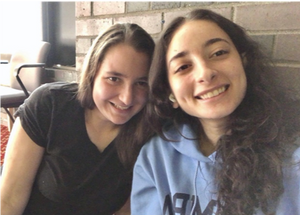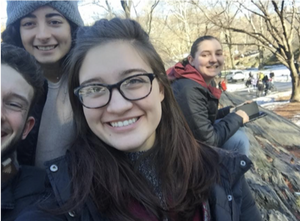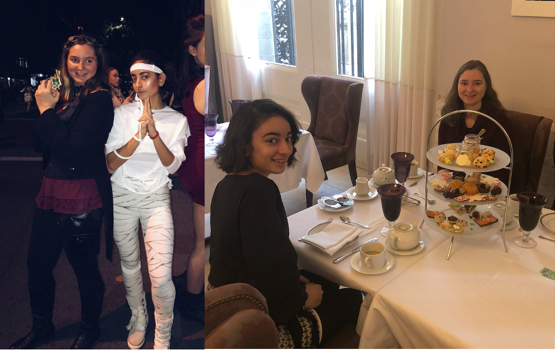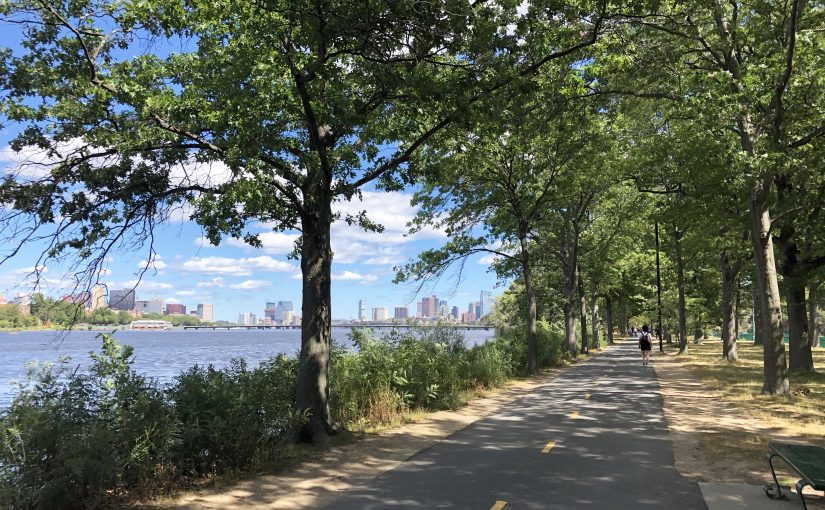Emily Yoder (CAS’24)
My freshman year of college took place during the 2020-21 academic year, during which Boston University offered hybrid courses and most of my classmates were not on campus. Although the coronavirus negatively impacted my first year in college in multiple ways (virtual classes and club meetings, take-out only dining halls, etc.), one positive impact that it left me with was an improved understanding of what habits cause me to be my happiest and most productive. Spending more time than usual sitting in my dorm left me thinking about how I could motivate myself to make the most out of my freshman year, even under covid circumstances. I’ve collected some tips below that have not only stayed with me for two years, but have also enabled me to be involved in multiple extracurriculars, all while getting the most out of my academic experiences and having free time for my hobbies too!
1. Find a routine that works for you, and stick with it!
Productive and healthy routines aren’t one-size-fits-all! Experiment with wake-up times, meal times, and study spots until you figure out your favorites. If you’re not a morning person, forcing yourself to wake up at 5:00 am won’t automatically make you more productive! One of the best general life tips that I’ve received is that discipline succeeds when motivation fails; keeping a consistent routine has stopped me from procrastinating even when I haven’t necessarily felt energetic or motivated.
2. Schedule your free time!
As the semester speeds up, midterms begin, and then finals approach, it’s easy to not see friends for a week or abandon hobbies. Add blocks of time specifically for seeing friends, reading, or doing whatever relaxes you to your schedule, even if it seems that you don’t have time to do so. The busier you are, the more important for your mental health it is to force yourself to take a step back! You’ll come back to your work refreshed and focused. Scheduling blocks of free time also incentivizes me to stay on track while working because I know that I have something to look forward to later, even if it’s just reading in bed for a half-hour or going on a quick walk with a friend.
3. Cast a wide net with extracurriculars, and then narrow your focus!
Finding clubs and extracurricular groups that are a good fit may take some time. Go to SPLASH, reach out to clubs that grab your attention, attend their first meetings, and then look for others if they aren’t a good fit! As you begin attending meetings, you can narrow your choices down to your favorites, but it’s useful to initially join every mailing list that catches your eye.
4. Recognize and combat burnout!
Even though BU is a large school, it can be tempting to sink into the same routine each day and never try a new dining hall, study spot, or off-campus cafe. When signs of burnout begin to show (fatigue, lowered motivation, etc.) switch up your routine even in small ways: try a new Starbucks drink, do your homework outside, or try grabbing dinner with someone you want to get to know better!
5. Track every commitment and assignment!
My most important college habit has been consistently using a planner. Buy a planner or create an online calendar and write down every commitment, whether an extracurricular event, dinner with friends, or a meeting with your advisor, the minute that you commit to it. Create separate sections for normal homework, larger projects, and deadlines for quizzes and tests; assignments and events pile up quickly and it’s easy to lose track of smaller commitments! I also color code: yellow for academic/extracurricular meetings, purple for social commitments, blue for when I need to submit major assignments, and red for deadlines.
6. Work ahead!
I try to complete homework assignments two days in advance, so Wednesday’s homework on Monday, Thursday’s homework on Tuesday, et cetera. It isn’t always possible, but using this system has enabled me to spontaneously say yes to plans with friends, review topics with which I struggled, and begin larger projects further in advance! Additionally, if I realize that I missed an assignment, I have time to catch up before it is due.
7. Know yourself!
All of these strategies have allowed me to make the most of my college experience, but every person and every student is different and learns differently. Go through a process of trial-and-error to get to know what balance of academics, extracurriculars, and social life is best for you!





